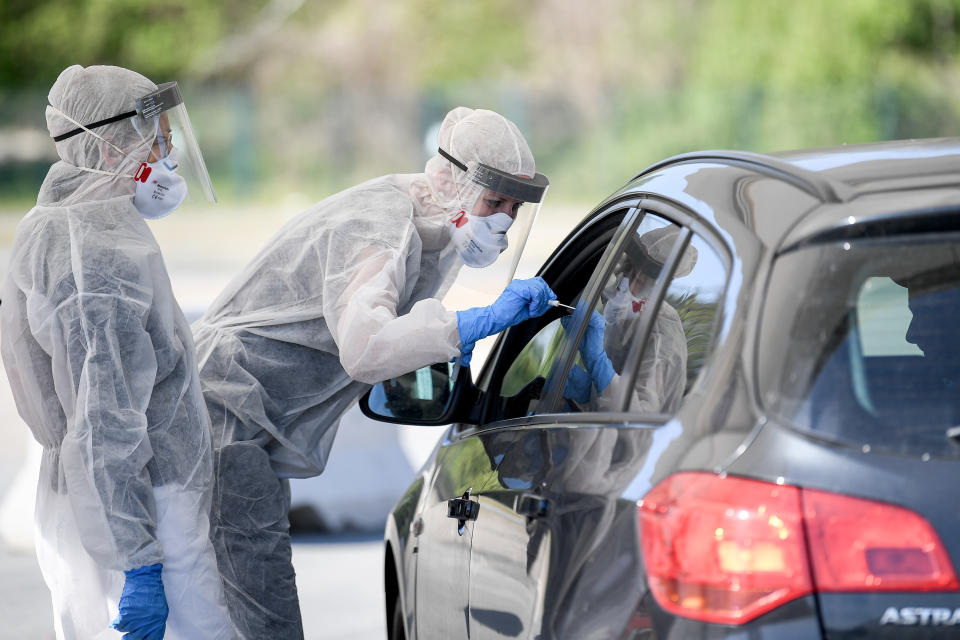Coronavirus: Germany aims to test all new hospital and care home admissions

Germany’s federal health minister said today that he is pushing through new regulation to ensure everyone admitted to hospitals, nursing homes, and other care facilities will be tested for COVID-19 — even if they have no symptoms at all.
Staff at medical and care facilities would also get tested as a preventative measure.
"When patients and residents are admitted or transferred, COVID-19 tests should be the norm,” health minister Jens Spahn told Welt newspaper. “My goal is to submit regulation in May that will enable preventive tests in hospitals and nursing homes.”
Spahn said that the country’s healthcare system can easily cope with testing everyone on arrival at medical and care facilities.
“Last week, 425,000 tests were carried out across Germany,” Spahn said. “But the test capacity is more than twice as large.”
Germany’s Robert Koch Institute recommends blanket screening of old people and high-risk groups; more than 3,000 of Germany’s 8,215 deaths from COVID-19 were residents in nursing homes.
Germany has attracted broad global attention for how it has managed to keep its death toll comparatively low. The UK has seen more than 36,000 deaths, Italy more than 32,000, and France and Spain around 28,000 in each country.
While there are many factors at play, the country acted fast when it came to testing, supplying labs with test kits, meaning it was well-armed to test and isolate people with little or no symptoms.
By the end of April, the country’s labs were teed up with the capacity to carry out nearly 900,000 coronavirus tests a week.
Germany already had a high volume of intensive care beds, around 28,000, and the government ordered tens of thousands more to be added to ensure hospitals would not be overwhelmed.
While lockdowns were not as strict as in Spain and Italy, the German lockdown began early, and people by-and-large obeyed chancellor Angela Merkel’s appeal to stay home to protect everyone.
Now that the nationwide lockdowns are broadly lifted — although social distancing requirements remain and people have to wear face masks in shops and public transport — it is the responsibility of the country’s state leaders to monitor new spikes in infections and impose local lockdowns where necessary.
READ MORE: Coronavirus: Germany opens up again as Merkel hands over to states
Health minister Spahn said today that Germany would establish a reserve of essential media equipment, including personal protective equipment (PPE), to be ready in case of another wave of the pandemic.
“The reserve will ensure security for several months, so that we do not get in a situation like in February and March where even medical staff do not have enough masks and gloves.”
Right now, however, he said that the country is over-supplied with PPE, and healthcare providers have are running out of storage space. "Because of that, we will end daily deliveries to the federal states and statutory health insurance associations until the middle of the year."
READ MORE: Coronavirus: Pandemic pushes Germans to finally ditch cash for cards

 Yahoo Finance
Yahoo Finance 